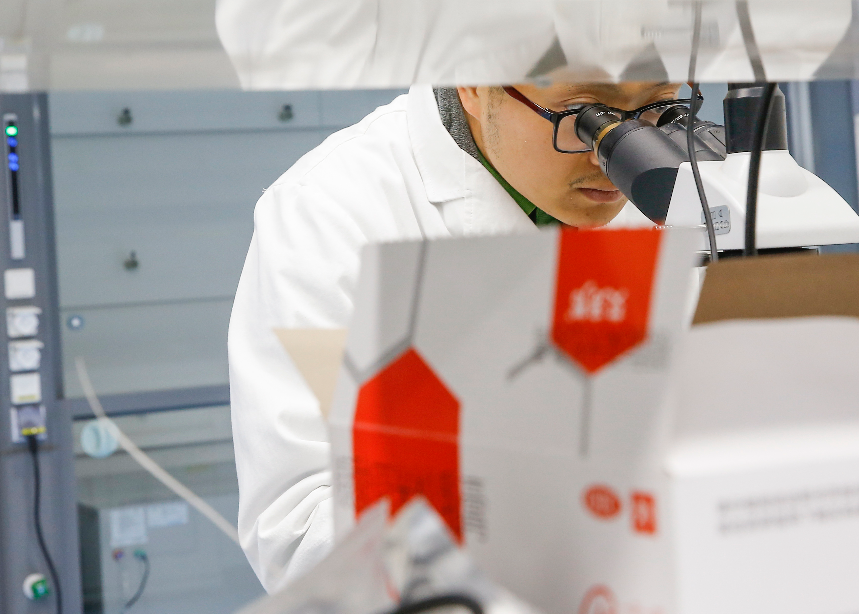BEIJING, April 25 (Xinhua) -- Physics Nobel laureate Chen Ning Yang expressed confidence in China's scientific sector, saying its advancement will encourage more Chinese researchers studying abroad to return home.
Yang, honorary director of Tsinghua University Institute for Advanced Study, made the remarks in an interview ahead of the university's 110th anniversary that was celebrated on Sunday.
While some claim China is still lagging behind in cutting-edge research, the progress in this field is long-term in nature, said the theoretical physicist who returned to China after working in the United States.
"Scientific research needs a long time of accumulation and accretion to lay a good tradition," Yang said. "To push back the frontier of science also requires new perspectives and courage, which are not easy."
Calling for building self-confidence, Yang said China has taken a leading position in multiple scientific and technological fields and has trained a number of talented scientists.
"As China grows stronger, more outstanding researchers and graduates from Tsinghua will come back (from abroad) in the next 10 or 15 years. You can visit me 20 years later to discuss this again," the 99-year-old researcher told Xinhua.
A Tsinghua graduate, Yang spent decades working as a physicist in the United States. In 1957, he received the Nobel Prize in Physics with another Chinese-American Tsung-Dao Lee for their work on the so-called parity laws, which led to important discoveries regarding the elementary particles.
Yang returned to Tsinghua in 2003 as a professor and the honorary director of the newly established Institute for Advanced Study. Despite his age, he has insisted on giving lectures to undergraduate students to "help and point the way for would-be researchers."
Tsinghua has become "a top-notch university in the world," said the veteran researcher, adding that the institution's fate has been entwined with China's rise.
"Today I can probably say 'I've seen the dawn'," Yang said. "China has gone from its poverty-ridden past to a state of dawn. Tsinghua has contributed to this process and will continue to make more contributions." Enditem




 A single purchase
A single purchase









